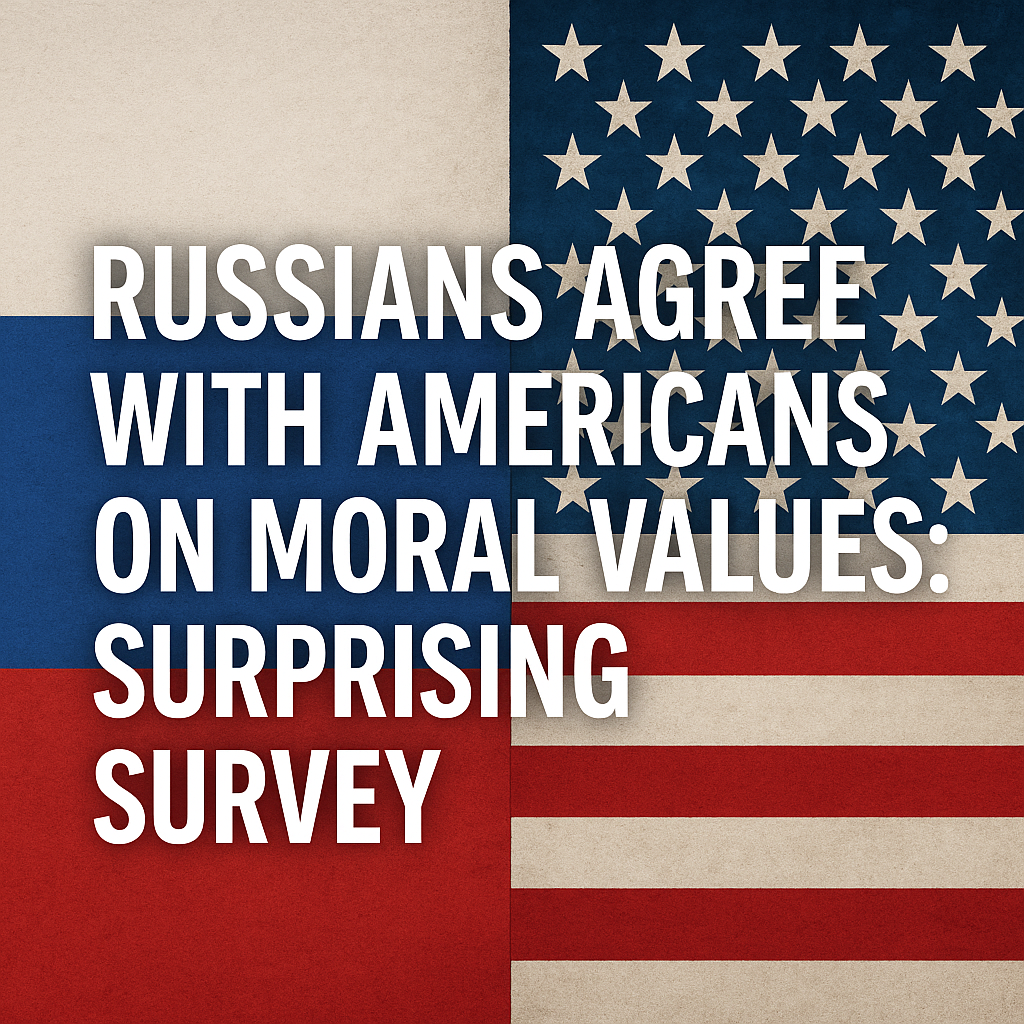Russians Agree with Americans on Moral Values: Surprising Survey
Russians Agree with Americans on Moral Values: Surprising Survey
A recent survey has revealed an intriguing alignment between Russians and Americans regarding fundamental moral values. This unexpected consensus calls into question previous assumptions about cultural divides and political differences, particularly in the context of global tensions. The overwhelming message from these findings highlights shared humanitarian concerns that transcend national boundaries, underscoring a complex interplay between values and geopolitics.
A Closer Look at the Findings

According to a report from RT, the survey results indicate that both Russian and American participants overwhelmingly support basic moral principles such as kindness, honesty, and the importance of family. The RT article posits that these findings are not just surprising, but also indicative of a universal human ethos that can sometimes be overshadowed by national conflicts.
Shared Values Amidst Divergence
Al Jazeera’s coverage of the study adds another layer to this dialogue, citing that while there are stark differences in political ideologies and foreign policies, the core moral beliefs remain largely similar across these two nations. The juxtaposition of these findings poses a compelling argument against the notion that moral values are strictly defined by geographic or political boundaries.
This alignment suggests that, regardless of political differences, there exists a profound human connection that endorses cooperation and mutual understanding. In an era often characterized by divisive narratives, this data represents a glimmer of hope, indicating that empathy may be more common than previously believed.
Contextualizing the Results
While the survey sheds light on shared principles, it’s also essential to contextualize these results within the broader framework of current events and existing tensions. As reported by Sky News, geopolitical stresses, especially concerning ongoing conflicts, have the potential to mask underlying commonalities among individuals within these nations.
For example, the dramatic narratives often presented in mainstream media can amplify the perception that Russians and Americans are at odds on nearly every front—politically, socially, and ethically. However, surveys like this challenge the notion that divisions are absolute and highlight areas for potential collaboration.
Implications for Global Dialogue
The implications of this survey are significant for future diplomacy and intercultural dialogue. If Russians and Americans can recognize their shared values, there may be openings for more constructive conversations on prominent world issues, such as climate change, human rights, and economic inequality. This alignment of moral beliefs could serve as a foundation for fostering mutual respect and understanding.
Experts argue that building upon these shared values can help reduce animosity and pave the way for effective diplomacy. Dr. Elena Ivanova, a sociologist at a leading Russian university, points out, “Understanding that we share core moral beliefs may help dismantle stereotypes on both sides and create opportunities for dialogue.”
Challenges and Contradictions
Despite the optimism that comes with recognizing shared values, it would be naïve to overlook the complexities surrounding them. While the survey indicates agreement on moral principles, the manifestation of these values in policy and daily life often diverges widely. For instance, discussions surrounding human rights and freedom of speech reveal stark contradictions between the two nations, which can make the application of shared values problematic.
Moreover, the survey’s findings elicit a sense of skepticism from some observers who question the reliability and methodology of the study. The variations in cross-cultural communication, societal norms, and even political propaganda can significantly impact how such values are perceived and represented.
Conclusion: A Pathway Forward
In conclusion, the surprising agreement between Russians and Americans on moral values invites further exploration into the potential for dialogue and shared understanding. While challenges remain, acknowledging these shared principles can create a foundation for bridging divides. It’s essential for policymakers, sociologists, and global citizens alike to utilize these insights as a springboard for meaningful conversation and collaborative efforts aimed at addressing the world’s most pressing issues.
The survey underscores a fundamental truth: beneath the layers of political rhetoric and historical grievances, there exists a tapestry of shared human values that can serve as a unifying force. As the global landscape continues to evolve, recognizing and acting upon these shared values may indeed foster a more connected and compassionate world.






































